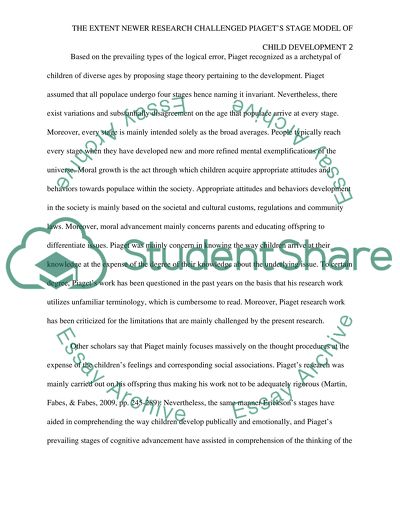Cite this document
(“To what extent has newer research challenged Piaget's stage model of Essay”, n.d.)
To what extent has newer research challenged Piaget's stage model of Essay. Retrieved from https://studentshare.org/psychology/1680454-to-what-extent-has-newer-research-challenged-piagets-stage-model-of-child-development
To what extent has newer research challenged Piaget's stage model of Essay. Retrieved from https://studentshare.org/psychology/1680454-to-what-extent-has-newer-research-challenged-piagets-stage-model-of-child-development
(To What Extent Has Newer Research Challenged Piaget'S Stage Model of Essay)
To What Extent Has Newer Research Challenged Piaget'S Stage Model of Essay. https://studentshare.org/psychology/1680454-to-what-extent-has-newer-research-challenged-piagets-stage-model-of-child-development.
To What Extent Has Newer Research Challenged Piaget'S Stage Model of Essay. https://studentshare.org/psychology/1680454-to-what-extent-has-newer-research-challenged-piagets-stage-model-of-child-development.
“To What Extent Has Newer Research Challenged Piaget'S Stage Model of Essay”, n.d. https://studentshare.org/psychology/1680454-to-what-extent-has-newer-research-challenged-piagets-stage-model-of-child-development.


